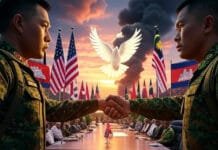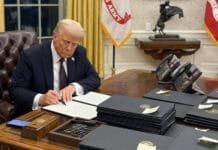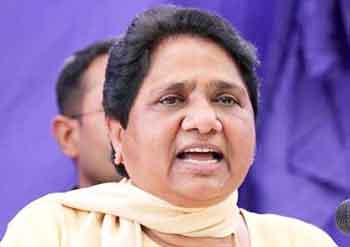The fragile state of Sudan’s internal conflict has taken a dangerous turn as the Rapid Support Forces (RSF) and its coalition, the Tasis Alliance, have formally announced the formation of a parallel government in the war-torn Darfur region. This bold political maneuver threatens to fracture the country permanently, potentially leading to a full-fledged civil war that could engulf Sudan in deeper chaos.
RSF Establishes Sovereign Council in Occupied Darfur
In a dramatic development, the RSF-led alliance proclaimed a sovereign council to govern the regions under its control in western Sudan. The RSF commander, General Mohamed Hamdan Dagalo, also known as Hemedti, has been named the head of this new governing body, signaling a move to assert political legitimacy over territories seized through force.
The newly formed council includes 15 members, each strategically selected from different factions loyal to the RSF. It claims to act as the de facto authority in Darfur and surrounding territories, positioning itself in direct opposition to the internationally recognized government in Khartoum.
Historical Echoes of Janjaweed Resurface
The RSF, formerly known as the Janjaweed militia, has a deeply controversial and violent history. Originally established by former President Omar al-Bashir, the Janjaweed were accused of ethnic cleansing, mass killings, and widespread sexual violence during the Darfur conflict in the early 2000s. Now, under a new banner, the RSF faces fresh allegations of war crimes and atrocities as it exerts control across swathes of the country.
General Dagalo, now the face of this emerging government, has been sanctioned by the United States for alleged involvement in genocide. The RSF denies these accusations, but the international community remains skeptical, especially given its track record in Darfur and its aggressive military tactics in the ongoing conflict.
Strategic Appointments Aim to Consolidate Power
To give the new regime a semblance of legitimacy, the RSF and its allies have appointed key political figures in the new cabinet:
Mohammad Hassan al-Tayshi, a former member of Sudan’s post-2019 transitional government, has been named Prime Minister.
Abdul Aziz al-Hilu, the deputy leader of the Sudan People’s Liberation Movement-North (SPLM-N), a major rebel group, has also been appointed as Deputy Chief within the council.
These appointments were announced in a video broadcast from Nyala, a major city in South Darfur, now under RSF control. The location of this declaration adds symbolic weight to the announcement, underscoring RSF’s grip on the region and its attempt to project authority.
Khartoum Rejects RSF’s Shadow Government
The Sudanese transitional government in Khartoum has swiftly condemned the RSF’s move, labeling it a “fake government” and a direct threat to national unity. Officials have urged the international community to boycott all diplomatic and economic interactions with the RSF-backed entity.
Despite this appeal, analysts warn that the creation of a rival administration could mirror Libya’s dual-government crisis, where years of division have paralyzed governance and fueled violent conflict. Sudan now stands at a similar precipice, with two centers of power vying for control and no clear path to reconciliation.
The Humanitarian Fallout: Darfur on the Brink
With the RSF now administering parts of Darfur, the humanitarian situation has grown increasingly dire. Aid organizations report severe restrictions in access to food, water, and medical supplies. The civilian population in RSF-held territories faces intimidation, forced displacement, and human rights violations.
Thousands of Sudanese citizens have fled their homes, many seeking refuge in neighboring Chad, South Sudan, and Ethiopia. The UNHCR estimates that over 8.5 million people have been displaced since the conflict reignited in April 2023. Relief agencies are overwhelmed, and border states are buckling under the weight of mass migration.
International Response: Condemnation Without Consequence
The international reaction to the RSF’s declaration has been one of unequivocal condemnation, but concrete action remains limited. The African Union, European Union, and United Nations have called for immediate dialogue, but diplomatic efforts have repeatedly failed to produce results.
The United States and United Kingdom have sanctioned RSF leaders, including Dagalo, for their roles in atrocities. However, the RSF’s continued territorial gains and now the formation of a political structure suggest these sanctions have done little to curb their ambitions.
Regional powers such as Egypt, UAE, and Saudi Arabia, who hold influence over both sides of the conflict, have yet to take decisive steps. Their silence is raising concerns that foreign interests may be fueling the war behind the scenes for strategic leverage in the Horn of Africa.
Opposition Voices Warn of Permanent Division
Prominent Sudanese opposition figure Yasser Arman has warned that the RSF’s move could irreparably divide the country. “This is not just a battle for territory; this is a battle for the soul of Sudan,” he declared in a recent statement. Arman believes that without urgent international mediation, Sudan risks becoming a failed state, split between east and west, with no hope of reunification.
Arman’s concerns echo those of civil society groups, human rights organizations, and Sudanese citizens who fear that the RSF’s military-political strategy is a power grab disguised as governance.
Sudan’s Future: One Nation or Two?
With two rival governments, escalating violence, and a growing humanitarian catastrophe, Sudan’s future is perilously uncertain. The creation of the RSF-backed parallel government is not just a political statement—it’s a military ultimatum. It threatens to cement a de facto partition of the country, making reconciliation efforts nearly impossible.
Without a strong and coordinated global response, Sudan could descend into a prolonged conflict, with foreign powers, tribal militias, and rogue factions carving the nation into zones of influence. The dream of a unified, democratic Sudan may soon fade into history unless the international community moves beyond condemnation and toward enforcement, intervention, and diplomacy.
Conclusion: A Nation on the Edge
Sudan stands at a crossroads, and the declaration of a parallel RSF government in Darfur has pushed the country closer to the edge of irreversible civil collapse. The world must no longer view Sudan as a distant crisis—it is a tinderbox with regional and global implications. Every moment of inaction risks cementing a legacy of division, devastation, and dictatorship.
As the civil war intensifies, the people of Sudan are left to endure the consequences of power struggles they never chose. Peace, if it is to come, must come swiftly—and it must come with accountability.

















[…] RSF Declares A Parallel Government In Darfur […]